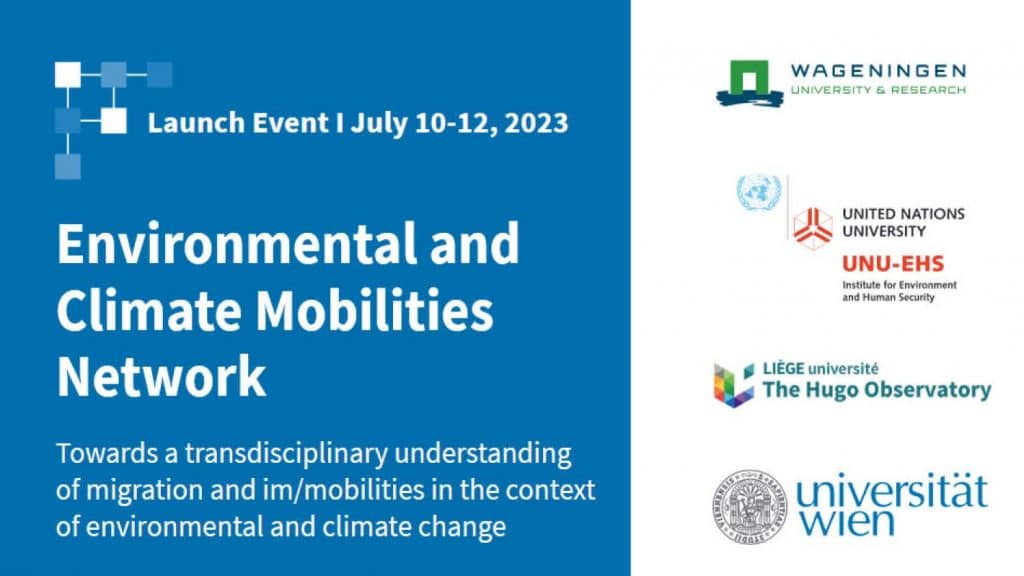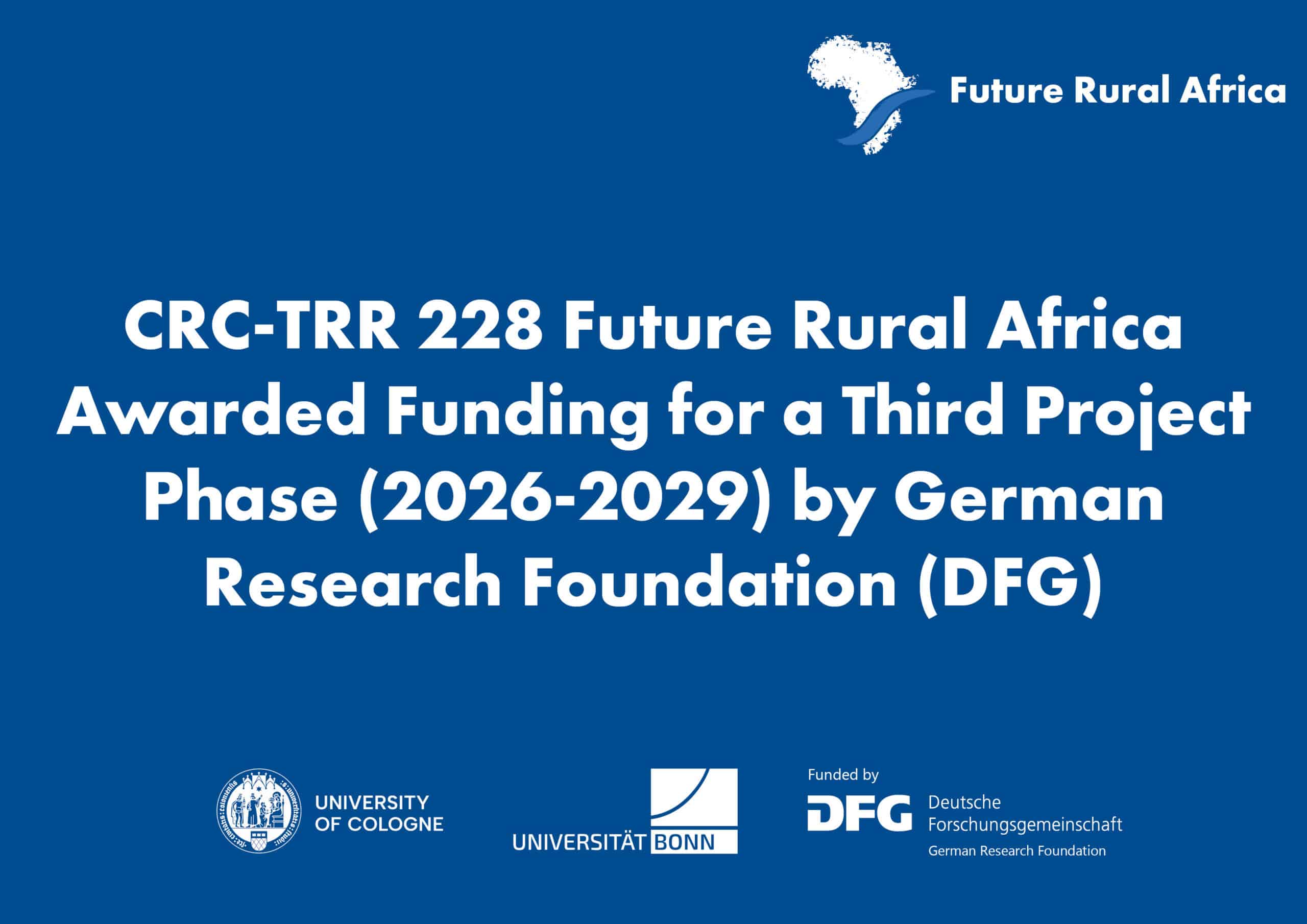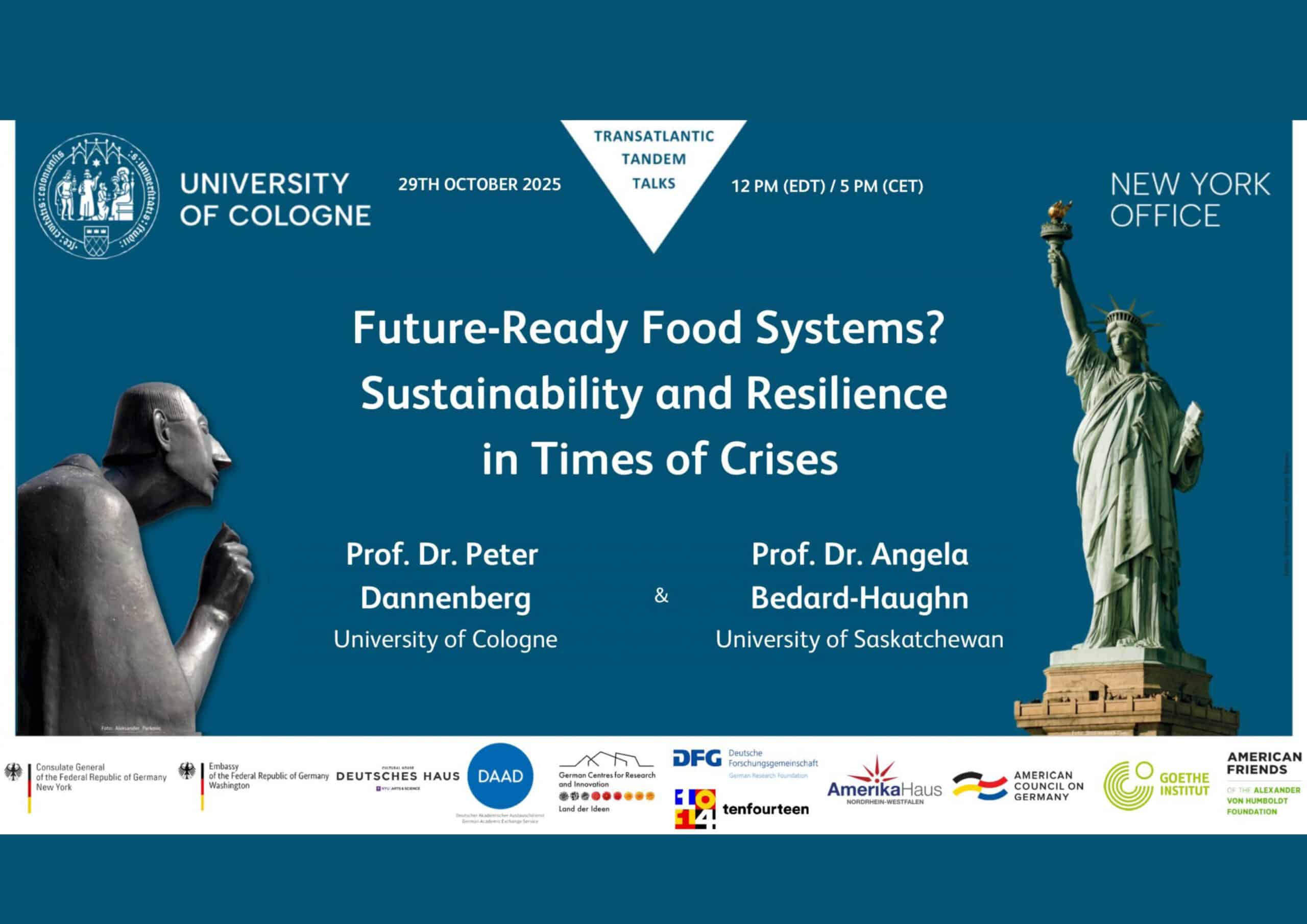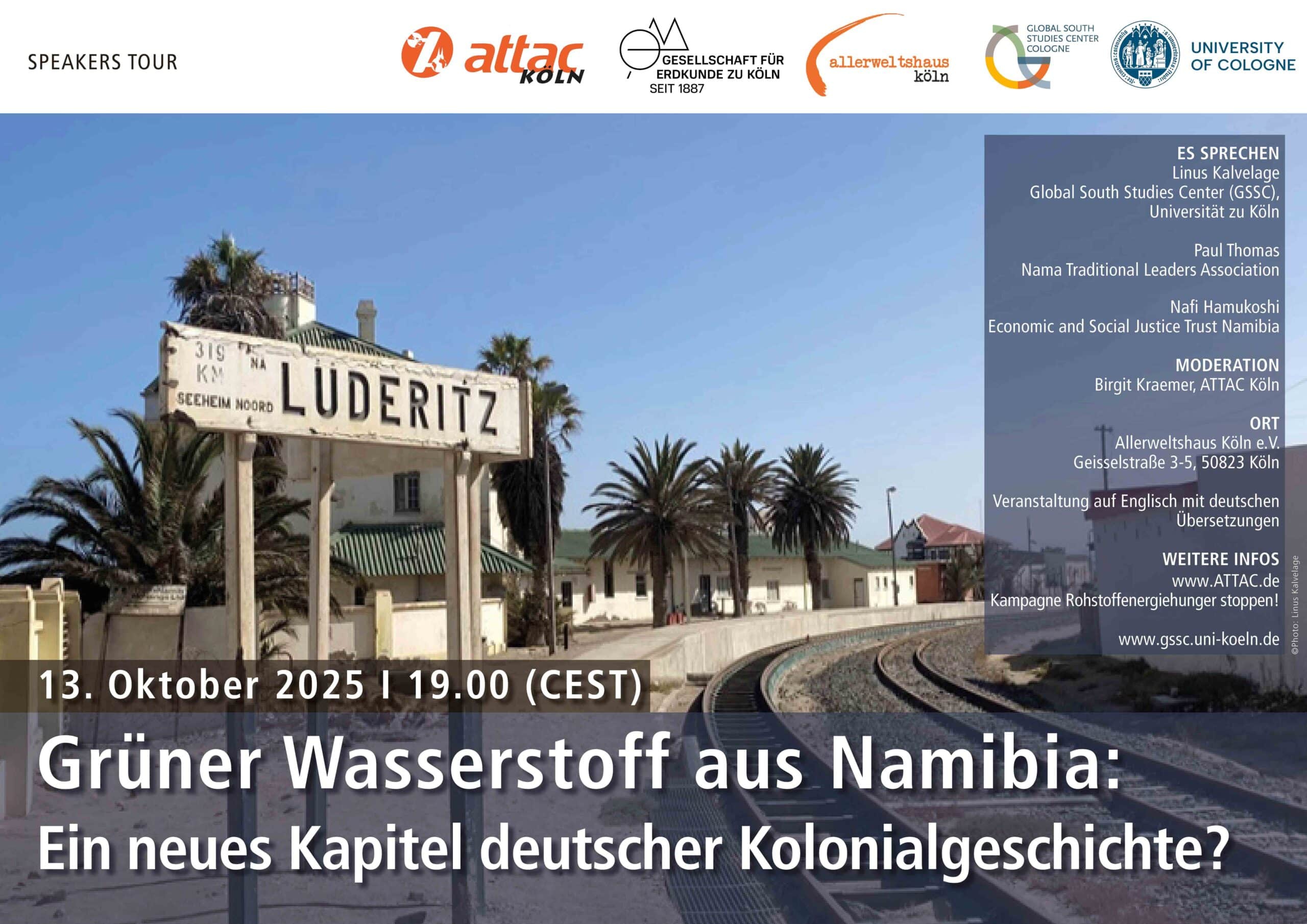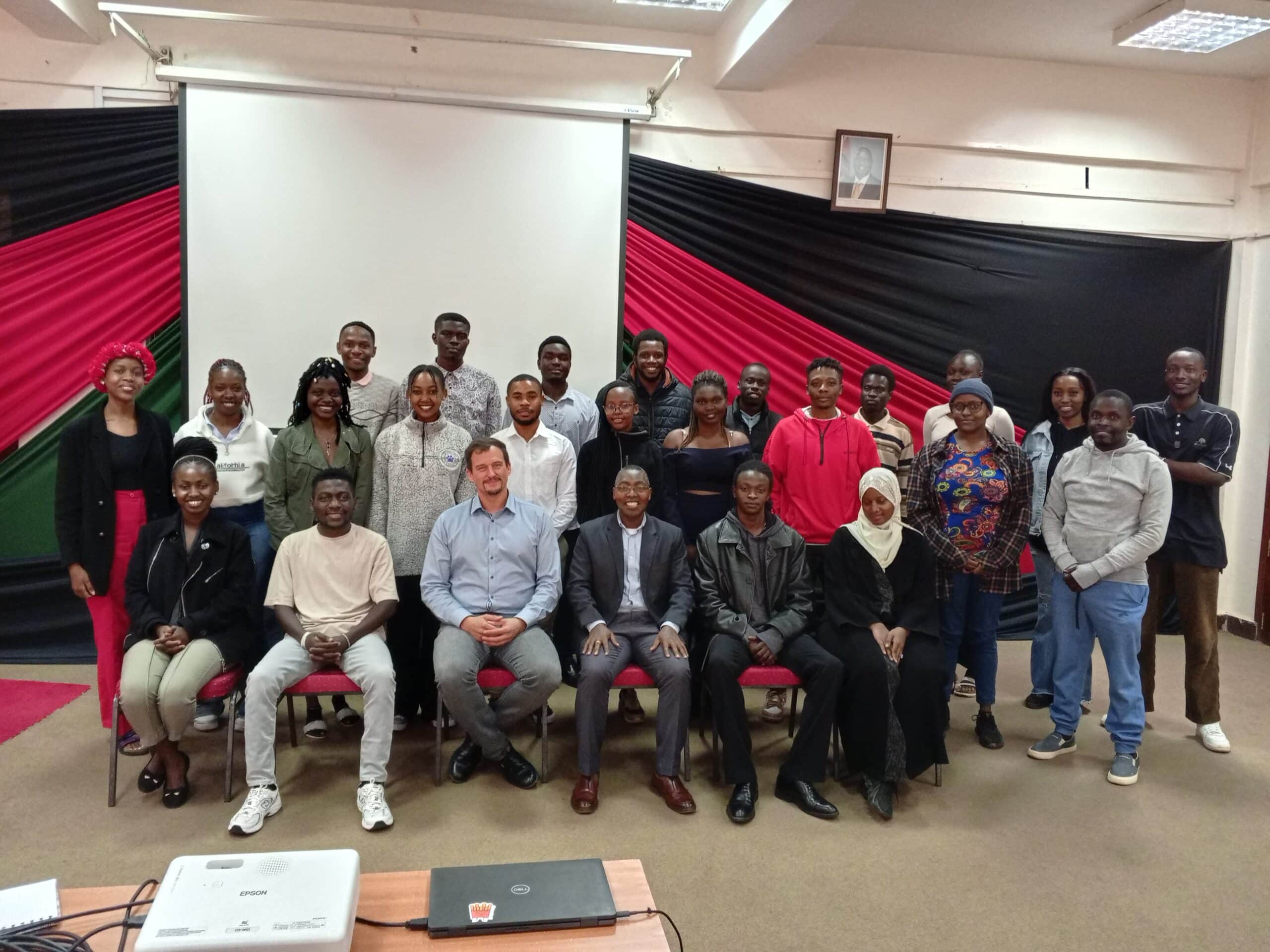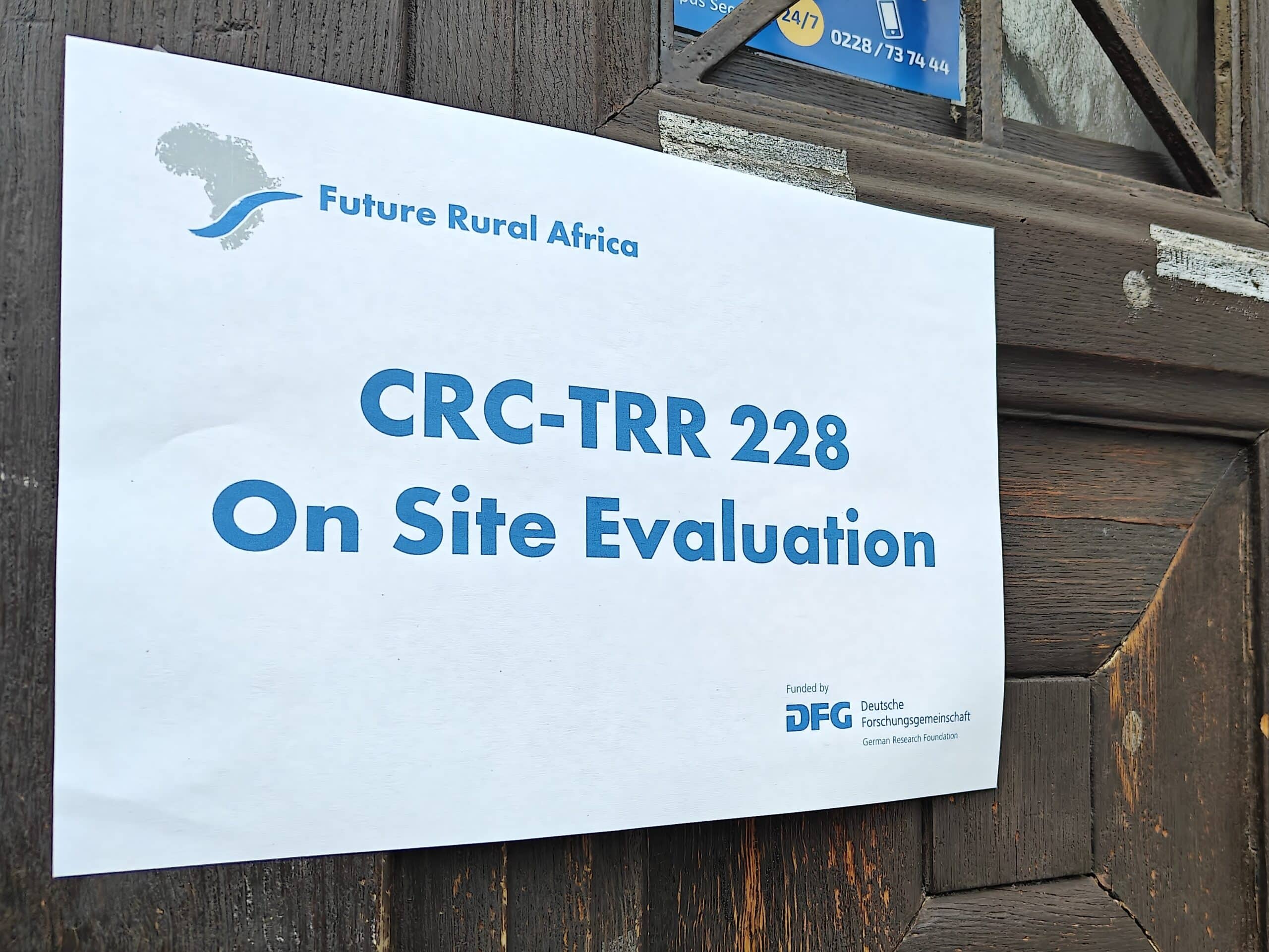JUL 10 – 12, 2023
Vienna, Austria
Registration: click here
Launch Event Environmental and Climate Mobilities Network
Climate mobilities and migration have for a long time been a niche topic in research, policies and public debate; this has changed in the past years, as is indicated by the number of publications, conferences, and the visibility in high-level meetings such as COP and in news and media. Research methodologies are becoming refined and more specialized, and the number of researchers in the topic is quickly growing. This is resulting, among others, in the emergence of epistemic and research communities with limited connectedness between each other (e.g. quantitative modeling, economics, development research, critical social science, legal studies, cultural studies, etc.). At the same time, public and policy discourses would benefit from inputs by a stronger research community.
Given this background, the environmental mobility researchers from the University of Vienna,Wageningen University, the Hugo Observatory, and the United Nations University, aim to build an open, transdisciplinary research network on climate mobility.
The launch event aims at bringing together researchers from different disciplines, as well as policy advisors and practitioners. The event will foster the exchange between and across disciplinary boundaries and epistemic communities and get insights in emerging topics, approaches, and methods. It will serve to network and connect with others, identify options for research collaborations and support career opportunities. It will also enable the participants to shape the purpose, direction and form of this new network.
Contribution
The network invites contributionsfrom all relevant disciplines and fields on the variety of themes related the topic (diverse mobilities and immobilities in the context of environmental and climate change: diversity of environmental and climatic events and change processes; the role of socio-economic, socio-cultural and socio-political processes for (im)mobilities; the range of methodological approaches and advancements; elevant policy processes, their implications and ways the question how science policy divide can be bridged).
If you want to contribute with an own presentation, please submit an abstract of max. 250 words until 15 March 2023 here

